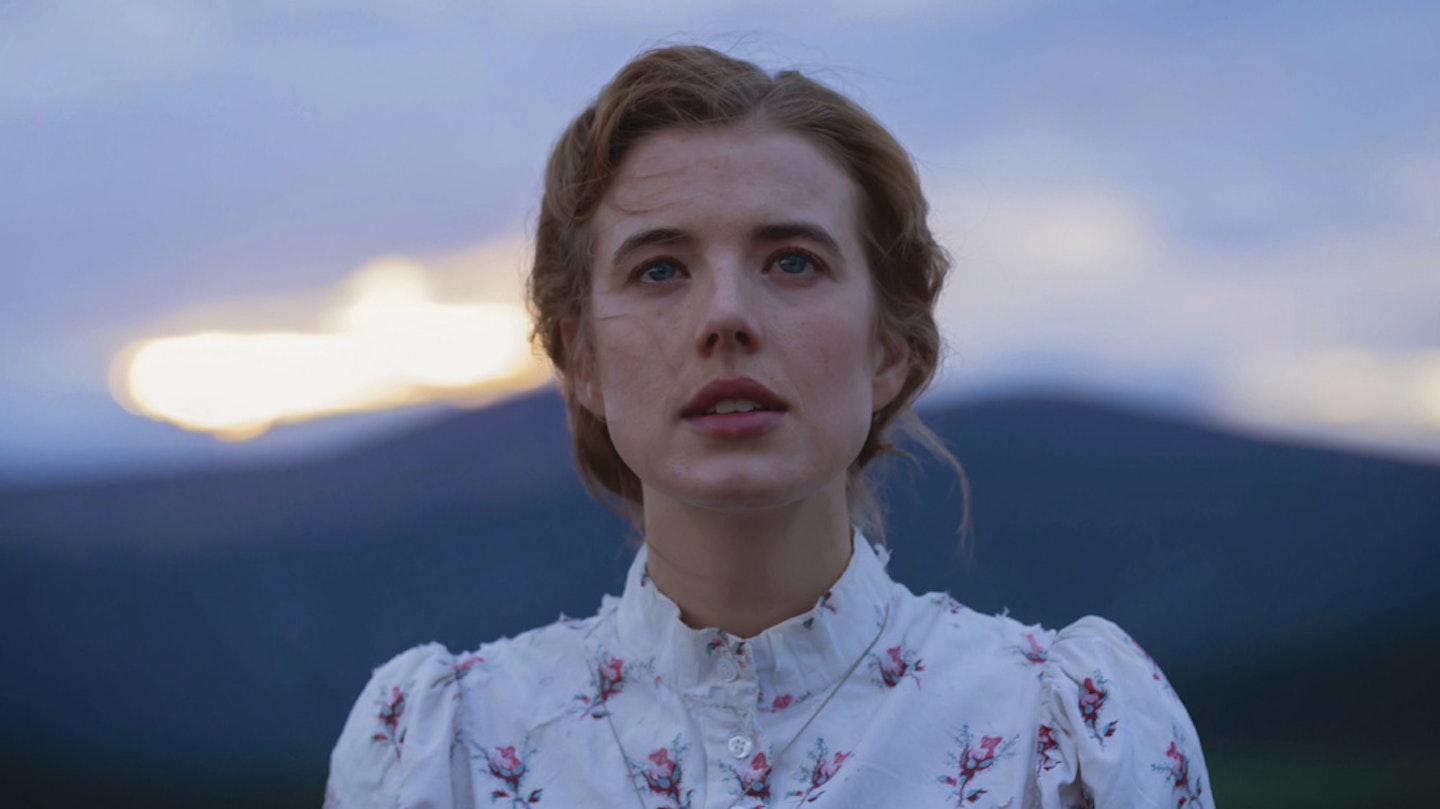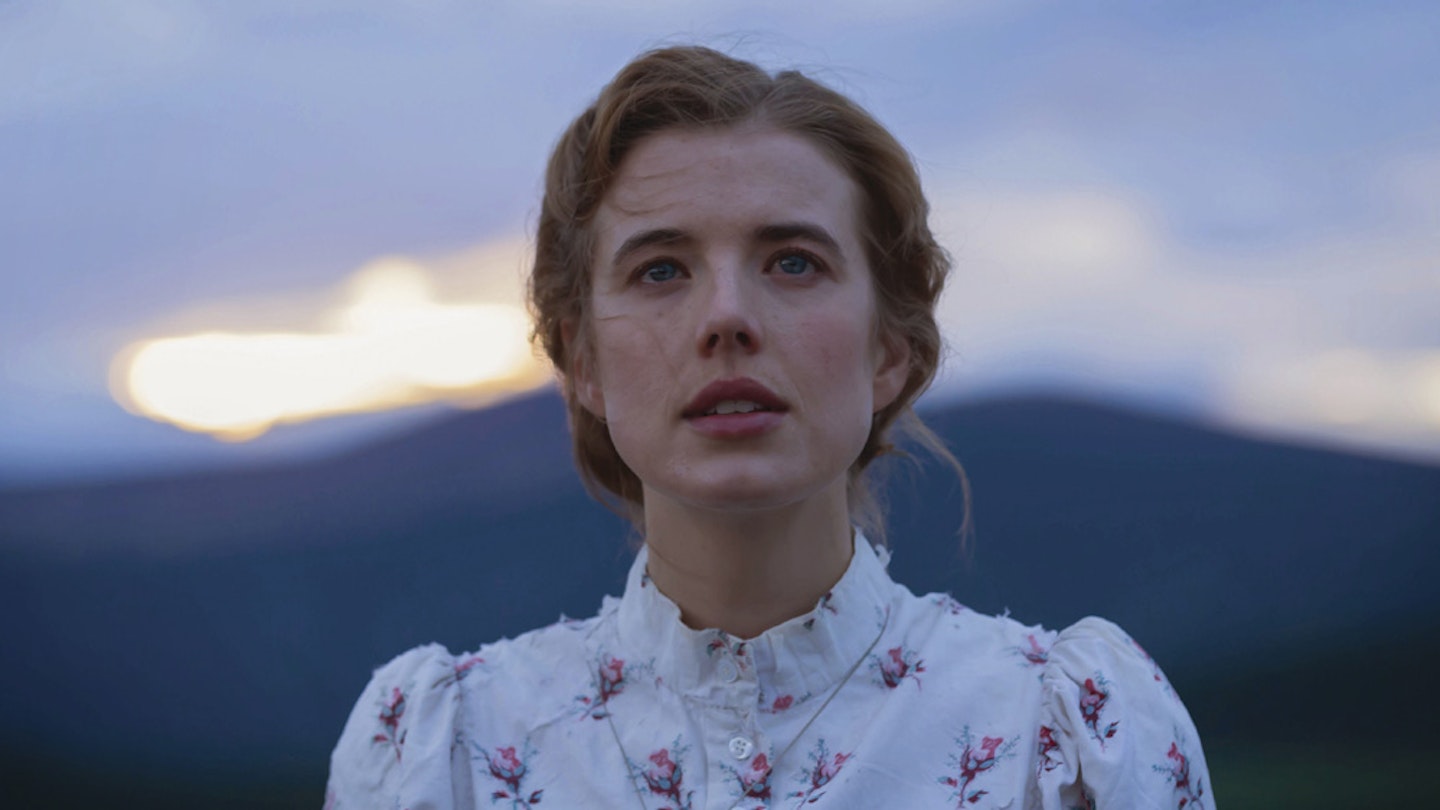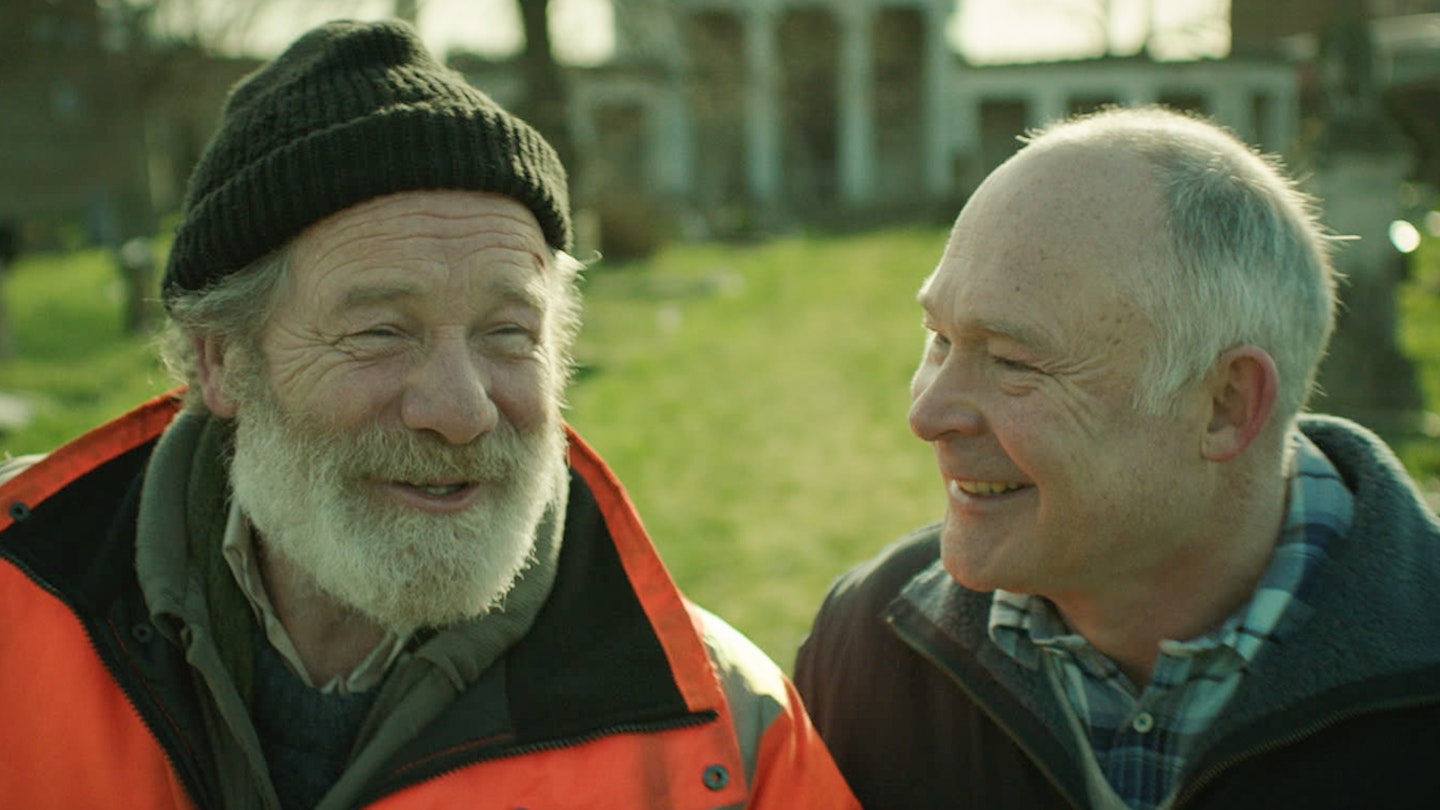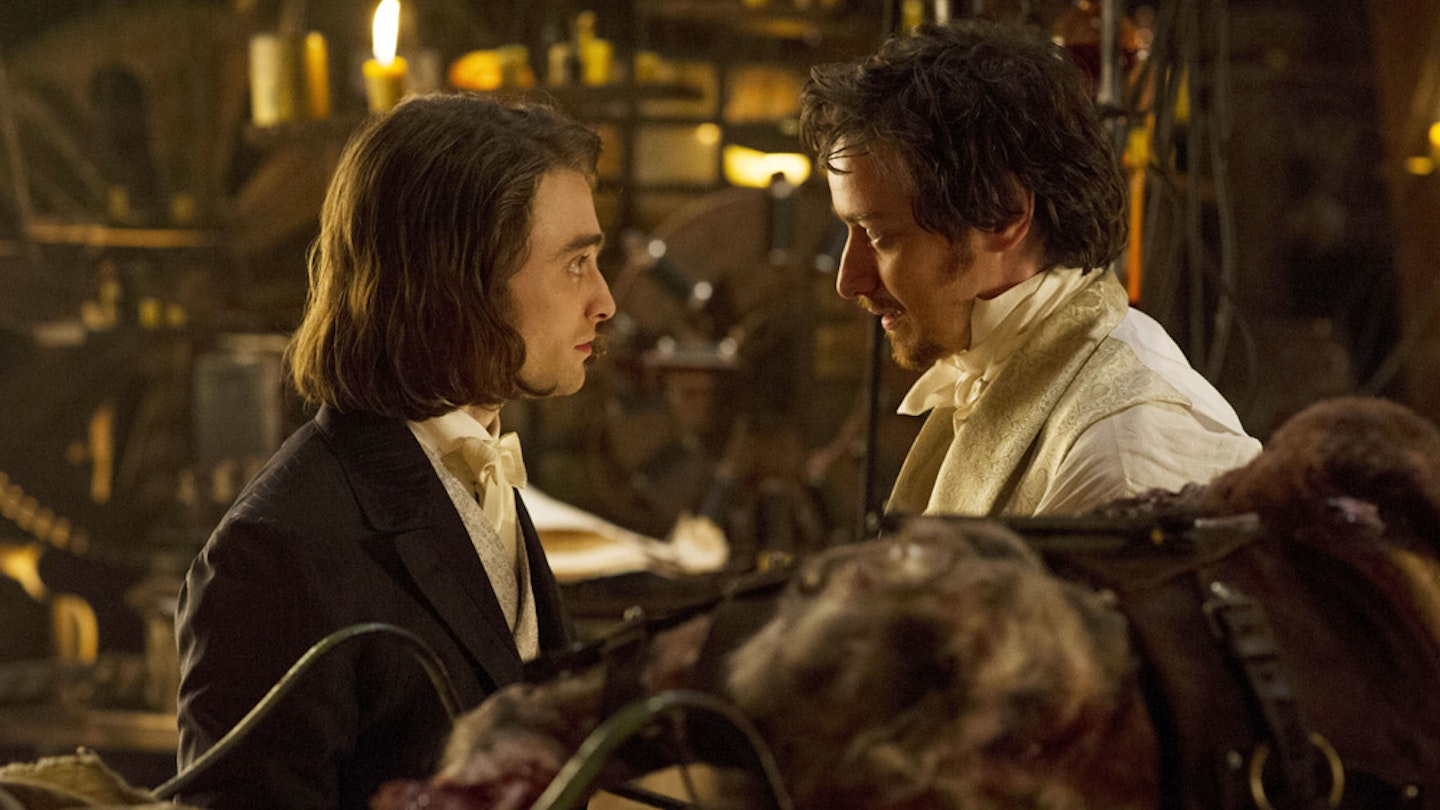Sunset Song, Lewis Grassic Gibbon’s 1932 novel detailing Scottish rural life, has long been a passion project for director Terence Davies. Swapping his regular milieu of ’50s Liverpool for turn-of-the-century Scotland, he takes all the grandiloquent passions and emotional turmoil of his domestic dramas (The House Of Mirth, The Deep Blue Sea) and transcribes them onto the rugged landscape of The Mearns. The result is overlong but beautiful and heartfelt, anchored by a stunning turn by Agyness Deyn as hardy heroine Chris Guthrie.
Beautiful and heartfelt, anchored by a stunning turn by Agyness Deyn.
Deyn’s task is a daunting one. The film tracks Guthrie’s journey from an idealistic bookworm to farmer to a loveless marriage with a husband brutalised by the ravages of trench warfare. There are snatched moments of joy — a country wedding pings with life — but this is mostly a hardscrabble Scotland, full of beatings with a belt buckle (Peter Mullan excels as Chris’ violent, God-fearing father), back-breaking work, suicide, rape and misery. The film shifts location only once, to war-torn France. The effect is equally heartbreaking.

In many respects, this is Distant Voices, Scottish Lives. Much of what concerns here is the stuff that has consumed Davies his entire career: physical abuse, the strength of women, an ache for the past, a respect for regional rituals, the power of communal song and the movement of the camera to inscribe meaning and feeling. But for a typically urban, interior filmmaker, Sunset Song is a hymn to the enduring power of the great outdoors, out-Malicking Terrence Malick in its obsession with earth, wind and fire (literally, not ’70s funk).
Occasionally it falls into a rote period-picture feel, mostly missing the more poetic approach of Davies’ best work. But it is held together and lifted by Deyn, who not only believably plays from schoolgirl to adulthood but flits between tenderness and toughness taking in every emotional colour along the way — her reaction to a last-reel telegram is the stuff of awards-nomination clip reels.


